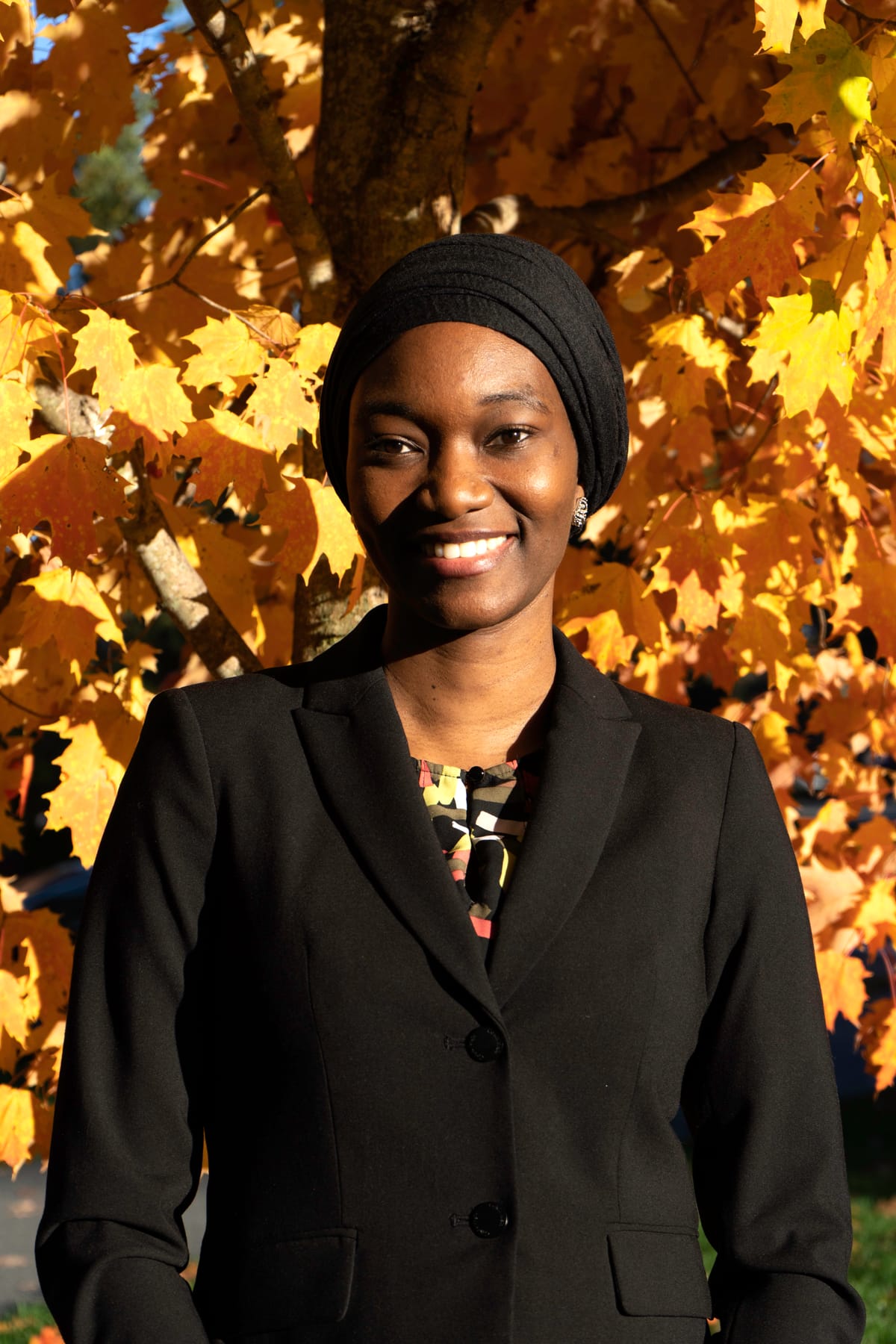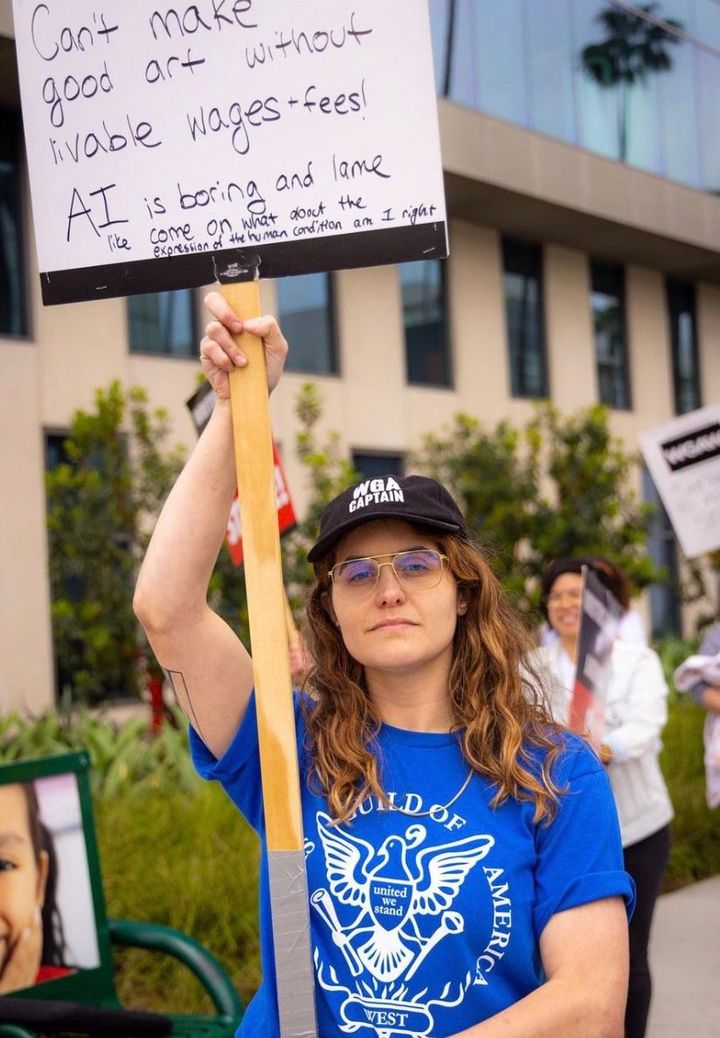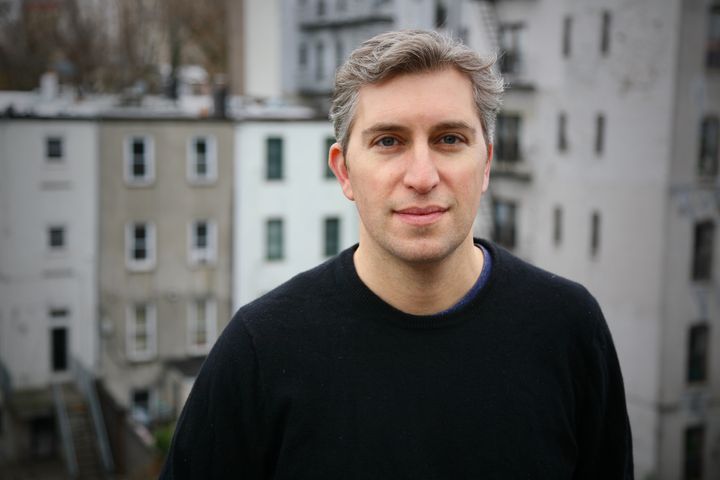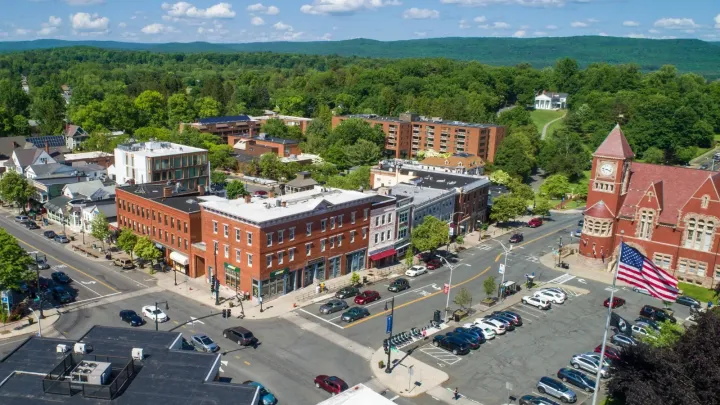Fresh Faculty: Aisha Yusuf
Aisha Yusuf is a visiting assistant professor of economics. She received a bachelor’s degree in economics from the American University of Nigeria at Yola, a master’s degree in economics from the University of Texas at San Antonio, and a Ph.D. in economics at George Mason University.

Q: Tell me about your academic background.
A: I’m Aisha, and I’m from Nigeria. I studied economics in high school, undergrad, master’s, and Ph.D. I know students study different things, but mine has always been economics. From a very young age I’ve always known I wanted to be an economist, just by my professors and by the classes I was taking … During my undergrad, I took a class in development economics, and that got me thinking about Nigeria, where I come from. [With Nigeria] being a developing country, I would ask myself questions like, ‘Okay, how come Nigeria is different from other developed countries? What can we do to be better?’ I was lucky to travel abroad with my parents and my family — we traveled to the U.K., and the U.S., and I got to see for myself how different institutions were here. And I asked myself questions like, ‘Why can’t we have these institutions in our country or in other African countries, in developing countries? What are we doing differently? How can we get the health care, the technology, the education that those developed countries have?’ That made me very curious and also want to delve deeper into the economy, and do my research on development economics … That’s why I’m an economist.
Q: You did your undergrad in Nigeria and then came to the U.S. for your master’s and your Ph.D. How have your experiences at an international university compared with your experiences at universities in the U.S.?
A: It’s very different — even though I did my undergrad at the American University of Nigeria, where the curriculum was just like the U.S., but it was in Nigeria, in Yola, to be specific. The professors were mostly American and from different countries, but you can’t really compare it to the U.S. because, you know, one is in the U.S. and then the other was in Nigeria. So you have two institutions, a different culture, [different] people, but I enjoyed both. In a class like development economics, I would say it’s very different taking it in Nigeria, as opposed to in the U.S. because even the language being used to describe developing countries is different in Nigeria than in developed countries. In Nigeria it’s more optimistic. It’s more like, ‘Okay, we have this problem. What can we do?’ As opposed to in more developed countries where they think of developing countries as kind of doomed, [like,] ‘How can we save them?’ So it’s very different, that lens being used, but I’m happy that I had the opportunity to study economics both in a developing country and a developed country, so I know the differences and [I know] what to take [from each], and also what to leave out.
Apart from that, there are also the cultural aspects, the norms, and the different shocks when it comes to meeting students and people. In Nigeria, for example, you’re more collective. Collectivism is a huge deal there. Here, people are more individualistic, so they do things on their own. I literally had to learn how to do things on my own … just doing things that you wouldn’t do when you’re in Nigeria because you have lots of family and people to help out. But then it’s all for the best, because I learned a lot about being independent. So that’s something I would say was really beneficial.
Q: Are you currently doing any research?
A: I’m currently researching Nigeria. Unfortunately, Nigeria has experienced different conflicts over the years. In the northwest we have the bandit problem. In the northeast we have Boko Haram, [a terrorist organization] that’s against education, and then in the south we have the conflict based on oil in the country. So what I’m examining right now is the conflict in Nigeria, particularly in the northwest, and how that affects both health and educational outcomes.
Looking at those individuals that have been exposed to the conflict, for example, [my research asks:] How did that impact their educational outcomes? Were they able to finish school or did we have lots of dropouts based on being exposed to the intense conflict in those regions? How does that affect different health outcomes? For example, when it comes to children, [how are] their birth weights [affected by the conflict]? If you have a family that has different children, [you can see those impacts] by comparing siblings, those born before the conflict, and those born after the conflict. So this is what I’m examining right now, in my study on Nigeria — these conflicts and how they affect human capital.
Q: I also saw that you were doing research on female genital mutilation (FGM). What is your research on this about? What led you to this topic?
A: Female genital mutilation, just to define it according to the UNICEF, is a procedure that is meant to alter or injure the female genitalia for non-medical reasons. This practice is not just in Africa, but also in different continents, like among migrant groups in Australia, as well as here in the U.S., and also Europe. We have male circumcision, and people know that, but when it comes to female circumcision or FGM, many people have never heard about it. They have no idea what this entails or where it’s been practiced, because there’s some sort of secrecy when it comes to FGM. And unfortunately, with FGM, there are lots of health complications that could be short-term or long-term. It can lead to childbirth complications, infertility, depression, mental health issues.
For many of these families and households that practice FGM, [the practice] is deeply rooted in their ethnicity. They grew up seeing their parents doing it and their grandparents doing it, [so] they feel that it’s kind of like an ethnic marker, and they have an obligation to continue with the tradition and norms that they’ve been practicing. But we know that there is no medical justification whatsoever for FGM. There are lots of health consequences, but then what are the benefits? So in my study, I examine the history of FGM to understand why it persists, and then why it continues, how history plays a role, and also examining how effective laws are [at controlling it]. Because in many of these African countries, there are laws against FGM — but to what extent are these laws effective when it comes to not just eradicating FGM but also when it comes to changing attitudes towards the practice of FGM? So this in a nutshell is what I study when it comes to female genital mutilation in Africa.
I got to learn about the topic of FGM, I think … in my third year of my Ph.D. It’s not a topic that I knew about for a very long time, I actually got to know about it … when I was researching different development topics … Very surprising[ly], [FGM] is practiced in Nigeria as well, among different ethnic groups. So I was wondering what has been done about FGM, [and] I also [saw] that it’s part of the [World Health Organization’s] sustainable development goal [of] gender equality. The idea is that the World Health Organization would like to eradicate FGM by the year 2030, so there is a need to eradicate FGM. I kept on researching, like, ‘How come I haven’t really heard a lot about FGM?’ It’s veiled in secrecy, but then in my attempt to find answers for myself and to know more about people that have gone through FGM, why they would like to continue to practice, to understand it better, that really got me asking questions and also wanting to dive deeper.
Q: The field of economics, especially here in the U.S., is stereotypically known as a field dominated by white men. As a Black woman with an international background, how do you navigate such a space? Do you find that it’s navigating these spaces is different in Nigeria and in the U.S.?
A: It is very different. That’s one of the things I noticed just coming here. During my undergrad, there were lots of female students in the economics department. Of course they’ll be Black, because it’s an African country, and then there were [also] lots of women. But then I remember going to my first class to do my master’s in Texas, and I was the only Black female, and I was wondering, like, ‘What is going on? Where is everyone?’ That’s something that I didn’t expect coming here, and it’s something that I’ve had to get used to, and then really set myself apart and then do more. Because given that women, particularly [women of color] are not really represented [in economics], that means that we have to do more just to be at the same level with white males. So that has been challenging. It’s made me more driven to put myself out there and do more research, but it can be tricky sometimes.
One thing that has also helped some is getting acquainted with other people of color and women to learn from them and their experiences and what has worked for them. I’ve found that this is very important when it comes to mentorship from different people who are out there, [who] are willing to take you along and make sure that you really succeed in the field of economics.
Q: Why do you think increasing diverse perspectives in the field of economics is important?
A: I think it’s important because you can look at it from different perspectives, right? Students, for example, want to study economics, [but] then they don’t see others like themselves in the field, and that kind of prevents them from delving into the field because they don’t see diversity. They don’t see themselves represented because they don’t see minority groups. I think it’s really important to have diversity when it comes to gender, when it comes to religion, and when it comes to your background [like] race. It’s very important as opposed to having just the stereotypical white male doing that.
Q: Do you think a more diverse field leads to more diverse research that can answer important questions?
A: Definitely. There are lots of economics researchers doing FGM, for example, and I have found that a lot of them are women from developing countires. So you see much more diversity, they will have much more research when it comes to different topics. I think diversity would play a huge role in the kinds of topics that people research and also the impacts it would make in the world.
Q: What made you decide to come to Amherst?
A: Amherst is a great place. I like the fact that Massachusetts is a very academic place. You have Harvard, Amherst, Williams, all those colleges and universities are here. So just coming here, I knew that if you’re an academic, then it would be good to come here. I do enjoy teaching. I do a lot of research, but then I do enjoy teaching students. It gives me so much joy. I’ve been a tutor, a teacher, a teaching assistant. And I’ve always wanted to teach at a liberal arts college. I feel like teaching in a liberal arts college is very different from teaching in a normal research institution. I’ve heard a lot about students here and the curriculum and the different courses that they take, and their curiosity, and how inquisitive students are. Just by coming to Amherst, it gives me the opportunity to interact with these students. Also just having colleagues [that are] the brightest in the field … and resources that will enable faculty members and staff to really progress, whether it’s in their teaching goals or research goals. These are some of the reasons why I decided to come to Amherst … I think this is a great place to be as a faculty member and also a student, too.
Q: What classes are you teaching this semester?
A: I’m teaching two classes right now. The first is “An Intro[duction] to Economics,” which is for students that haven’t taken any economics classes before. And then the second is “Development Economics.” So this [class] is me teaching students about development economics, why it’s important, and also the different issues that developing countries face today.
Q: What do you hope students will take away from your classes?
A: When I teach classes, my goal is for students to take the main concepts that they’ve learned and apply [them] to the real world. For example, in my development class, we go over different topics like trade, and foreign aid, scarcity, trade-off incentives. My goal is for [students] to take this and then analyze what they see around them. Use that in everyday conversation, to figure out what’s going on in the world and how to make the world a better place. There are lots of phenomena in the world — we have the pandemic, for example, we have conflicts in different countries. So I want them to understand the trade-offs, you know, the winners and losers when it comes to trade and relationships, and then use that to have a better idea of what’s going on in the world. That’s what I keep on telling them. I don’t want you to memorize, that’s not the key. The key is not for you to go in, take the test, get an A and that’s it. No, the key is for you to take the main idea and then use that towards understanding the world and making it better.
Q: When you’re not teaching or researching, what do you like to do?
A: So apart from teaching or research, what I enjoy doing is cooking. I like trying different cuisines, so you’d find me on YouTube, just researching different food, and then I get the ingredients and then I try to remake it to see what it is good or not. So I do like trying different foods and also cooking itself. I also enjoy walking, like taking walks or hiking, and also journaling. So if you don’t find me teaching or researching, doing those everyday things, you probably find me on YouTube trying to figure out how to make some kind of [dish]. Maybe it’s a Chinese cuisine or some Ethiopian cuisine, trying to recreate that and then make it for myself. Or just taking walks in nature … I love nature, and just going outside you can see that it’s fall [with] the changing leaves and trees. It’s so beautiful … I tend to do that a lot. And I write, like journaling.
Q: If you had one piece of advice to offer to an econ student, what would it be?
A: I would say be confident in your decisions. You know, sometimes you go into the economics field and you find that perhaps there aren’t enough people like you — if you’re from a minority group, you don’t see people like you. But nothing should stop you from reaching your goals, from breaking boundaries and breaking barriers and doing what you want. So just be confident and go for your goal and you’ll go far. That would be my advice. Be confident and you’ll go far.





Comments ()